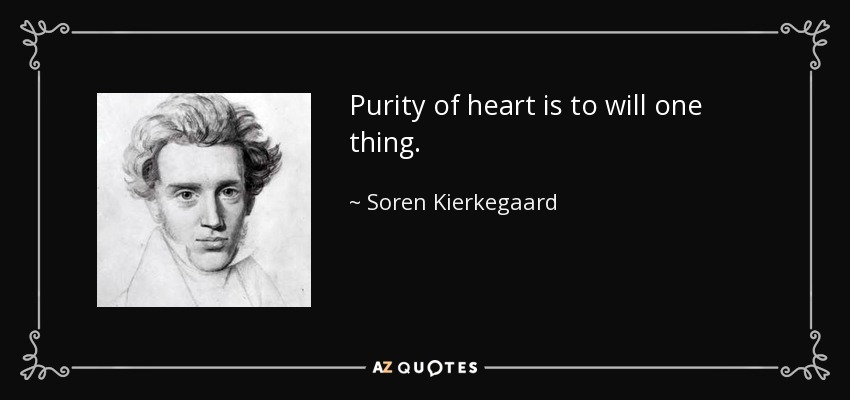What better way to explore the Sixth Beatitude—that “the pure in heart shall see God”—than Kierkegaard’s address. Søren Aabye Kierkegaard (1813–1855)—a Danish philosopher and theologian—wrote Purity of Heart Is to Will One Thing in 1846. It was the first of his Edifying Addresses to be translated into English and published in 1938.
Like his other Edifying Addresses, it was never spoken aloud to an audience. Instead, it was written for men and women to speak aloud to themselves. The address was aimed at an audience who read and who pondered what they read. Kierkegaard’s own life-long practice of reading sermons aloud to himself convinced him that there was no more effective way to engage with them.
Eduard Geismar, a Danish scholar of Kierkegaard studies, wrote of Purity of Heart Is to Will One Thing: “It seems to me that nothing that he has written has sprung so directly out of his relationship with God as this address. Anyone who wishes to understand Kierkegaard properly will do well to begin with it.”
Click here to continue


